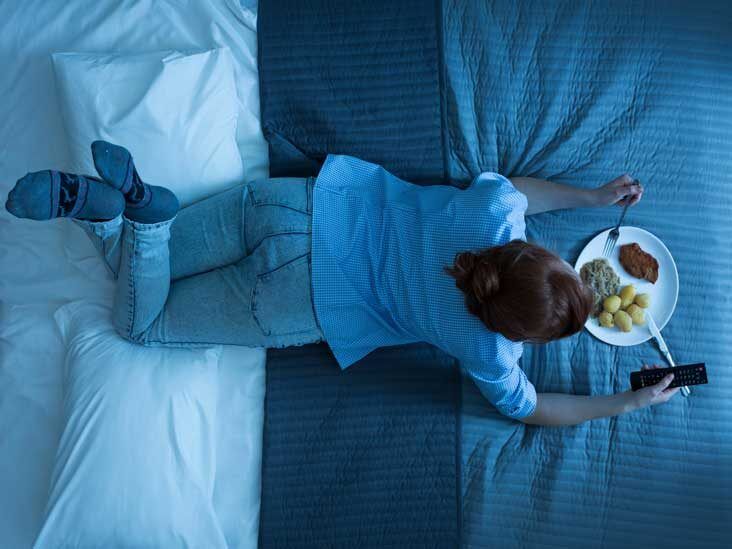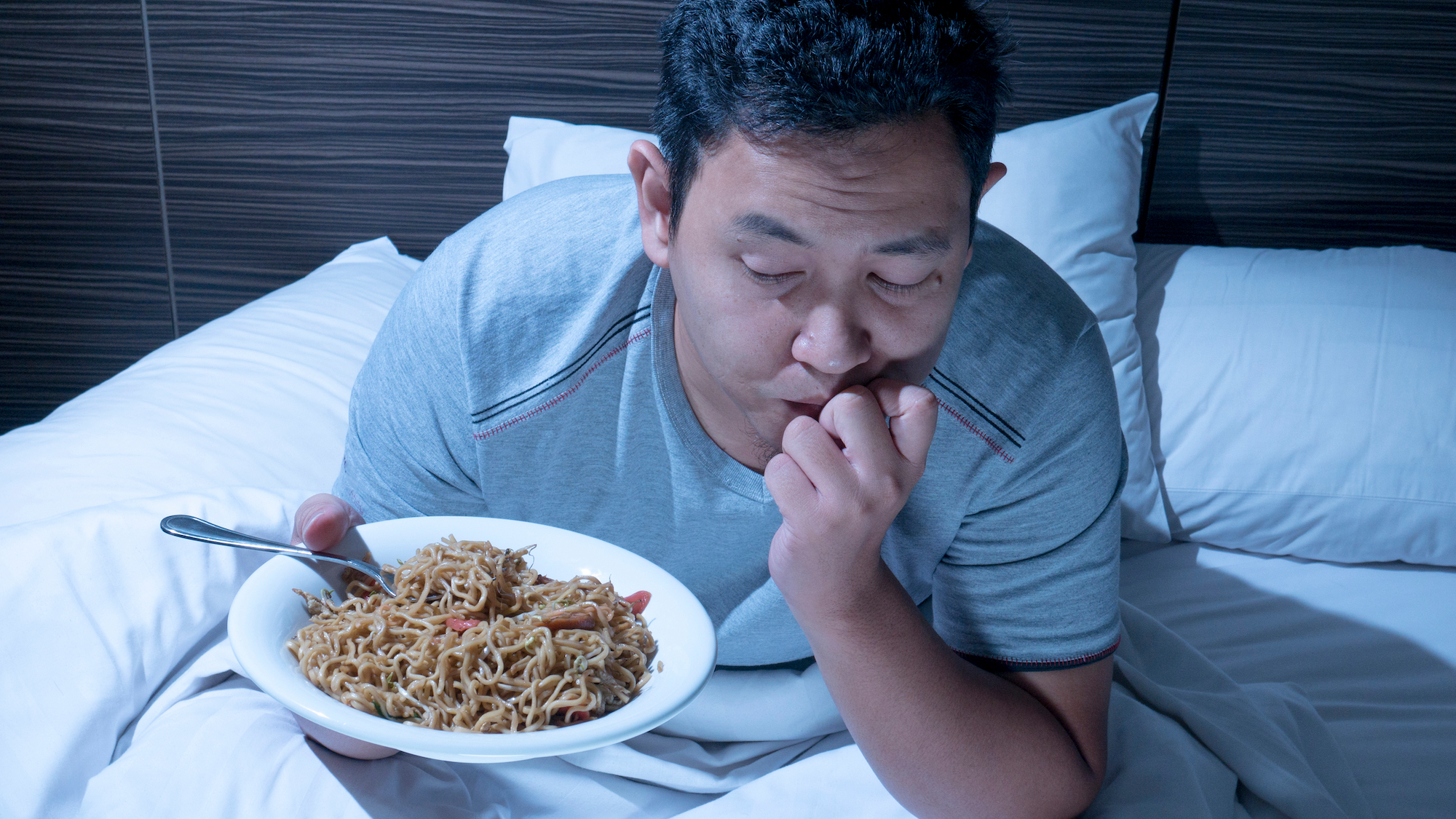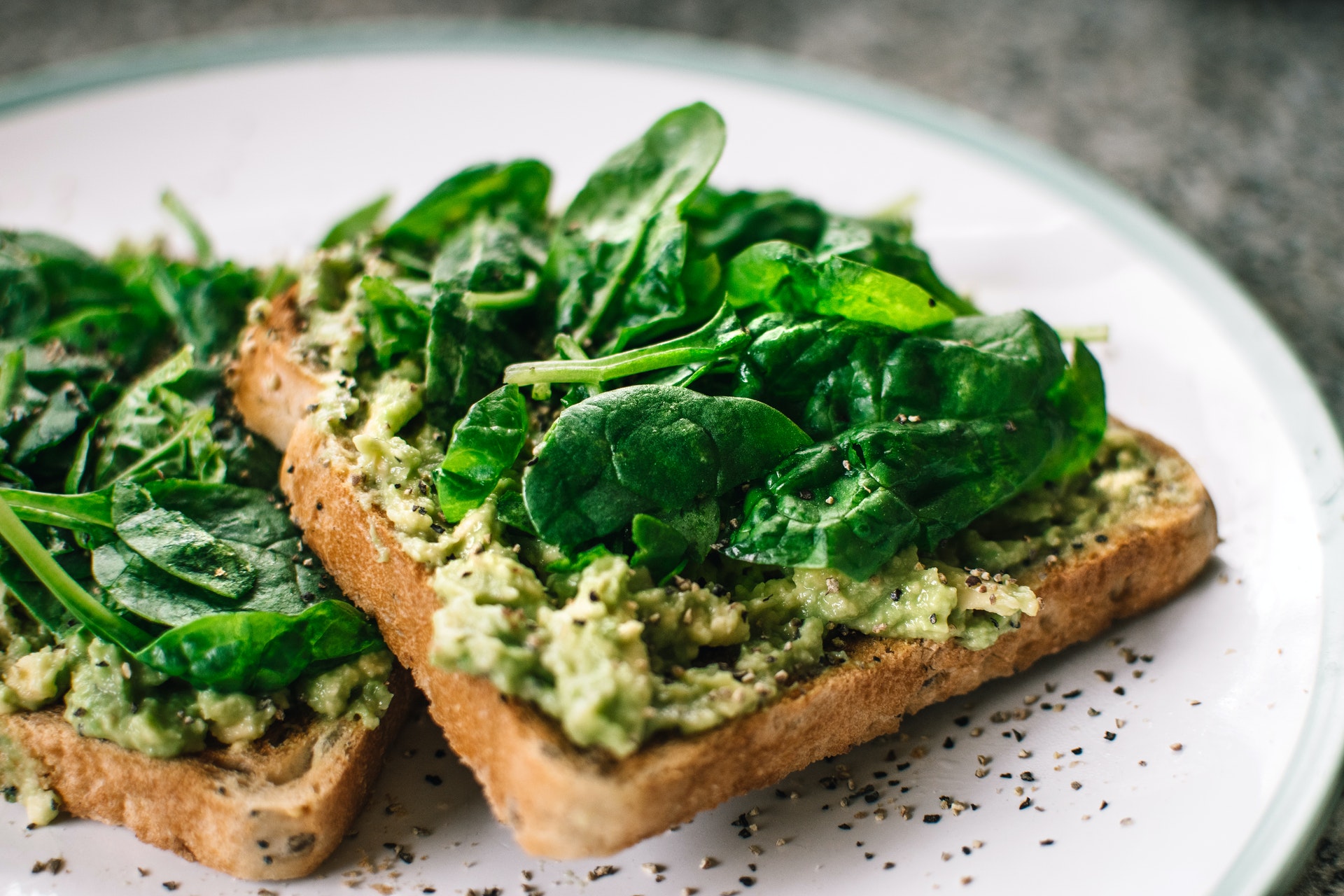Bedtime and Eating
Does eating close to bedtime make you gain weight? It depends.
Your body’s response to a calorie is different in the morning versus the evening, a recent study reports.
Eating later at night or just a few hours before bedtime contributes to several metabolic changes that increase hunger and may boost the risk of long-term weight gain.
Plenty of past research has found that late-night eating is linked to weight gain or obesity, but most studies are observational, and few explain why eating later might have anything to do with why people put on pounds. A recent study, published in Cell Metabolism, sought to address the question by controlling the calories participants ate, how much they slept, and how much physical activity they got so researchers could learn how and why eating later might affect weight.
One of the most significant findings from this report is that “a calorie is a calorie, but the response of your body to that calorie is different in the morning versus the evening,” said Frank A.J.L. Scheer, the senior author and a neuroscientist at Harvard Medical School.
That finding matches past research showing that the glycemic index of a food how it affects the body’s blood sugar following a meal varies depending on the time of day that food is consumed, said Nina Vujovic, a neuroscientist who led this study as a postdoctoral fellow at Harvard Medical School. The challenge people have with eating at the healthiest times, she added, is that many do not have regular schedules, or their schedule is outside their control.
In the study, Vujovic found that eating within four hours of bedtime affects two hormones related to hunger. On days participants ate closer to sleep, they also burned fewer calories and showed molecular changes in fat tissue suggesting their body converted calories into fat storage more easily.
What surprised Scheer most was that eating closer to bedtime affected all the factors they measured rather than just one or two of them. “In the nutrition field, I think the longest resistance against the idea that timing of food matters is based on this simplistic view of ‘a calorie is a calorie,’” meaning that it shouldn’t matter when someone eats it, Scheer said, “yet it does.”
But the authors also acknowledged that their study was not designed to determine whether eating dinner closer to bedtime long-term would lead to weight gain over time or whether the body might instead adapt to such a schedule.
That was the biggest criticism of the study from Ali Zentner, a weight management physician and medical director of Revolution Medical Clinic in Vancouver, Canada. “This study reveals a bit of the physiological response to food timing, which we already knew from animal models,” Zentner said. “The question is, does that affect weight, and if it does, in what way? That was never answered.”
What concerns Zentner most about studies like this is that “we're trying to move away from the idea that weight is a behavior, and all [this study] does is further that inappropriate conclusion that, if you just eat at a different time, you'll lose weight.” To the contrary, the growing evidence about intermittent fasting and time-restricted eating suggests they are not very effective as weight loss strategies, she said. She also pointed out that the study included only five women, and, except for four participants with obesity, the participants were only moderately overweight, so it’s hard to say if the study findings would apply to a more diverse group.:max_bytes(150000):strip_icc()/142627109-56a884de5f9b58b7d0f307d5.jpg)
Isolating the effect of meal timing
All 16 participants went through two different experimental scenarios for six days at a time, separated by a break of several weeks. This crossover design made it possible to see effects of the two eating times in the same individual.
In both setups, participants slept from midnight to 8 a.m., ate lunch at 1 p.m., and consumed the same number and type of total calories. But during the “early eating” week, they ate breakfast at 9 a.m. and dinner at 5:30 p.m. During the “late eating” week, lunch was their first meal, followed by a 5:30 p.m. dinner, and a 9:30 p.m.supper. Throughout both weeks, the researchers assessed participants’ hunger and energy expenditure as well as hormone levels in blood tests.
”This study is nice because it is so controlled, and it can really hammer home some of the more physiological effects of late-night eating that some of the observational outpatient studies cannot,” Kelly C. Allison, director of the Center for Weight and Eating Disorders at the University of Pennsylvania’s Perelman School of Medicine, said. Several findings matched those of studies she has conducted, including her finding that people burned less fat when they ate snacks overnight.
The results showed that late eaters tended to be about 10 to 20 percent more likely to feel hungry during waking hours, particularly in the morning, compared to early eaters, especially with cravings for starchy foods or meat. In line with that finding, late eaters had 16 percent lower leptin levels and experienced shifts in when their ghrelin levels peaked or dropped during their waking hours, compared to early eaters. Though frequently thought of as a “satiety hormone,” leptin is a hormone made by fat cells that tells the brain “how much gas is in the tank,” Zentner explained. Ghrelin is a gut hormone that drives hunger.
The differences in hunger and leptin and ghrelin levels existed despite participants eating the same number and type of calories in both timed eating scenarios. Further, the participants’ sleep time and quality did not differ whether they ate earlier or later. Yet the late eaters burned an average 59 fewer calories during the day than early eaters.
Seven participants, including two women, agreed to a biopsy of fat tissue from just under the skin. When researchers analyzed gene activity in these samples, they found that late eating flipped off the switch in several genes for breaking down fats while flipping on the switch in several other genes for fat storage.
With so few participants in such a short study, however, the researchers could not definitively say that late eating decreased fat breakdown and increased fat storage.
Meal timing matters — but maybe not for weight
Ultimately, the study calls into question the classic adage that energy balance is simply about “calories in, calories out,” said Satchidananda Panda, a circadian rhythm biologist at the Salk Institute for Biological Studies. Instead, the study suggests that metabolism varies at different points during a person’s circadian rhythm, or internal body clock. Even when consuming the same number of calories, “by changing when these people ate calories, the burning rate actually changes dramatically,” Panda said.
But it’s equally simplistic to suggest that “late night eating is bad for you,” he said, especially when huge swaths of the population work at different times of the day or night. Based on research he has conducted and read, Panda offered a different takeaway: avoid eating in the first hour after waking, when cortisol levels are highest and can impact blood sugar and try to avoid both eating and bright light in the three hours before going to bed.

The rationale for these rules of thumb, however, is not related to weight loss, Panda said. In his research, weight changes are independent of other metabolic benefits seen from avoiding food in the four hours before bedtime, such as lower blood pressure, reduced blood sugar, and reduced cholesterol.
Zentner agreed that the study’s findings offer little guidance for weight management, especially for those who already have obesity.
But that does not mean the study has no takeaways for the average person, especially when it comes to metabolic health independent of weight.
“It's really a shift in people's thinking that, as your body is changing over the day and night, it's not responding to the intake of food the same way,” Scheer said. For example, the body responds completely differently to carb-rich foods in the morning versus the evening.
In the morning, your body copes well, sugar levels don't rise so high in your blood, and they come down relatively quickly, Scheer said. When you eat the same meal in the evening, levels shoot up much higher and stay elevated longer.
Still, even those findings may vary depending on a person’s individual circadian rhythm and sleep schedule.
“Some of this will depend on how late people stay up and how early they get up,” Allison said. The study participants were in bed from midnight to 8 a.m. the perfect length of time, according to Panda but he said eight consecutive hours in bed at another time of day is just as important for shift workers or others without a “typical” day-night sleep schedule.
Then there are work and social pressures to consider.
“In an ideal world, we would say to start eating earlier in the day and finish eating earlier in the day, but realistically, most of us will not be able to adhere to a schedule like that for various reasons, many of them social because we are social beings,” Allison said. “So I think the best clinical advice we can give, based on the evidence that we have thus far, is to say: Eat your dinner as early as you can, and then try to close your kitchen.”
Source
https://www.sleepfoundation.org/nutrition/is-it-bad-to-eat-before-bed#:~:text=Eating%20before%20bed%20may%20stabilize,bedtime%20to%20avoid%20negative%20effects.
https://health.clevelandclinic.org/is-eating-before-bed-bad-for-you
https://www.verywellhealth.com/eating-before-bed-3014981
https://www.healthline.com/nutrition/eating-before-bed
https://www.sleepfoundation.org/sleep-news/how-often-do-we-eat-before-bed
https://www.ncbi.nlm.nih.gov/pmc/articles/PMC7215804/
























































